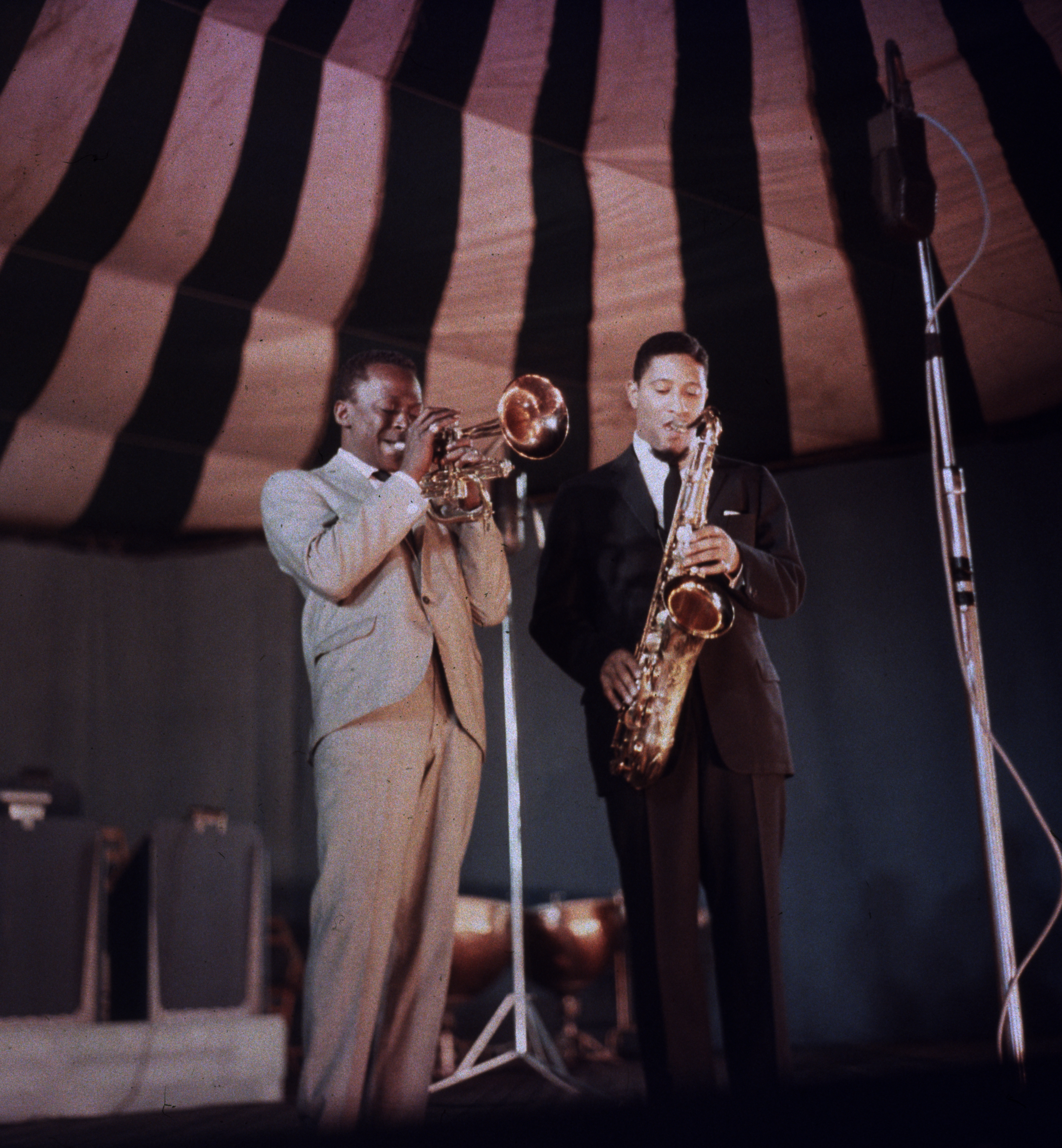Davis, Miles (1926-1991), was one of the most influential American jazz trumpeters and bandleaders in jazz history. He became famous for a forceful but lyrical trumpet style. His moody tone and original ideas made him one of the most imitated musicians of his day.

Miles Dewey Davis III was born on May 25, 1926, in Alton, Ill. In 1945, he went to New York City to study music at the Juilliard School. However, he spent most of his time performing with jazz bands, including a quintet led by alto saxophonist Charlie Parker. That group helped create the complex, modern form of jazz known as bebop or bop. In 1949 and 1950, Davis led a nine-piece ensemble in several recordings that helped develop cool jazz, a style that emphasized rich ensemble colors and emotional restraint (see Jazz (Cool jazz)).
During the 1950’s, Davis’ bands performed in a more energetic style, though his playing continued to emphasize melody. His major recordings include Miles Ahead and Porgy and Bess, both arranged for trumpet and orchestra by Gil Evans, and the sextet session Kind of Blue. Many musicians gained their first recognition in Davis’ bands, including saxophonists John Coltrane and Wayne Shorter; pianists Red Garland, Bill Evans, and Herbie Hancock; bassists Paul Chambers and Ron Carter; and drummers Philly Joe Jones and Tony Williams. From the late 1960’s until his death, Davis pioneered in fusion, a movement that combined elements of rock music with jazz (see Jazz (Fusion)). His autobiography, Miles, was published in 1989. He died Sept. 28, 1991. Davis was elected to the Rock and Roll Hall of Fame in 2005.
